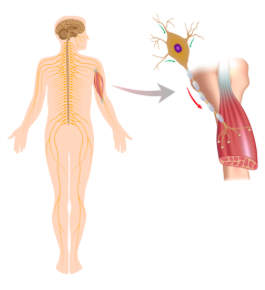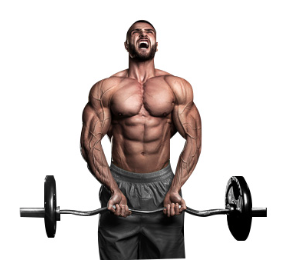What are Prebiotics and Probiotics and Why do They Matter?
Bloated stomach? Endless flatulence? Wicked diarrhoea? Believe it or not, you don’t have to live with these symptoms. Ever wonder ...

Bloated stomach? Endless flatulence? Wicked diarrhoea? Believe it or not, you don’t have to live with these symptoms. Ever wonder ...
An ability to build thick layers of lean muscle indefinitely is one trait no bodybuilder will ever possess, despite any ...
In today’s society, emphasis is placed on work and productivity over anything else. This could mean sacrificing quality of nutrition ...
One of the best strategies you can apply with success to a bodybuilders diet is protein rotation. In essence, eating ...
Post-training is your most insulin sensitive time of day and the time when your body can use carbs the most ...
Muscles store carbohydrates exclusively as glycogen, which is basically a long chain of glucose molecules linked together. The level of ...
In preparation for writing this article, I wanted to see what exactly was written out on the web when it ...
The process of muscle growth is best stimulated with high volume using relatively moderate weights. But to get stronger faster, ...
There is, without a doubt, a no more difficult area of the body to develop muscle size and strength, than ...
When it comes to “Junk” food. First we must clarify what “junk” is. Carbohydrates themselves for example don’t make you ...
In their eagerness to increase strength and build muscle, most devoted iron trainees will ceaselessly pound down the protein, carbs, ...
In a startling feat of biological engineering, our body must involuntarily produce an array of chemicals to promote specific actions ...
 Of the major neurotransmitters, acetylcholine just might be the most important from a muscle building standpoint. As a
Of the major neurotransmitters, acetylcholine just might be the most important from a muscle building standpoint. As a
major neurotransmitter of the autonomic nervous system, acetylcholine helps to stimulate muscle growth by controlling the contraction of skeletal muscle.[5] If looking to build big, strong, metabolically-active muscles, acetylcholine production is a necessity.
The first neurotransmitter to be discovered (circa 1914) acetylcholine has major roles in the peripheral nervous system (PNS), among which include muscle contraction and heart rate modulation. Acetylcholine also plays a major role in the central nervous system (CNS), exerting a variety of effects on arousal and reward — helping to shape cognition, mental acuity, and behavior. [8][7] Also shown to promote the Rapid Eye Movement (REM) sleep essential for memory consolidation and productive sleep, a disruption in acetylcholine production may lead to poor sleep quality. [6][11]
The Science
Acetylcholine is produced by the enzyme choline acetyltransferase from the compounds choline and acetyl-CoA in specific neurons clusters located in the brain. The two main classes of acetylcholine  receptor are nicotinic and muscarinic, the former being found in muscle and CNS tissue, and the latter in the CNS, heart, lungs, upper GI tract, and sweat glands.
receptor are nicotinic and muscarinic, the former being found in muscle and CNS tissue, and the latter in the CNS, heart, lungs, upper GI tract, and sweat glands.
The release of acetylcholine (ACh) can either be excitatory or inhibitory, depending on the receptor type on its adjoining cell and its physiological role in a given tissue. For example, ACh has an excitatory role as a signal-promoting neurotransmitter in skeletal muscle — and an inhibitory role in cardiac tissue, where it lowers heart rate.
Acetylcholine also shows profound effects on that all important determinant of bodybuilding success, nutrition. **Brace yourselves, you’re about to get blasted by some science. Whenever food is seen, smelled, or tasted, the vagus nerve is prompted to release acetylcholine, which binds to cells in the parietal lobe of the brain. This causes a cascade of calcium ions to awaken intracellular phosphokinase enzymes which, in turn, encourage proton pumps to expel hydrogen ions, that combine with chloride ions, to form the hydrochloric acid needed for the proper digestion of food .[3] **For those of you that found that last bit a little overwhelming, to summarize, acetylcholine triggers the production of stomach acid, arguably the most important physiological factor when it comes to proper nutrient absorption. Acetylcholine and optimal nutrition, go hand in hand.
Nicotinic Receptors: The Muscle Triggers
Named for the fact that they are stimulated by nicotine, the nicotinic acetylcholine receptors affect both the CNS and PNS in ways that enhance the way we think, feel, and function. One of the more important functions of the nicotinic receptors is muscular contraction. Released by nerve cells in many parts of the peripheral nervous system, acetylcholine controls all muscle movement — whether smooth (GI tract & other organs), cardiac (heart), or striated (skeletal muscle).
For skeletal muscle activation, acetylcholine is released into nerve terminals that contain acetylcholine receptors. [5] These receptors, when triggered by acetylcholine, allow sodium to permeate the muscle cell. Upon entering the cell, sodium causes a depolarization (a dramatic electrical change within the cell), that encourages an electrical cascade which leads to the release of intramuscular calcium ions. Calcium, in turn, prompt a series of chemical events involving troponin and tropomyosin (regulatory proteins), all of which leads to muscle contraction. [5][12]
Boosting Acetylcholine
Because of its critical role in stimulating muscular contraction and in activating the CNS, low acetylcholine levels may result in weak muscles and poor reflexes. Furthermore, due to its importance in cognition, people with low acetylcholine may have difficulty focusing and thinking clearly. In extreme cases, poor acetylcholine production can lead to Alzheimer’s disease and dementia. [1]
The most important step toward boosting acetylcholine levels is to consume a choline-rich diet. A precursor for acetylcholine production, choline is abundant in egg yolk, pork, fish, and liver. [13] Providing the least amount of choline are fats and oils.
Specific supplements which increase choline levels include [13]:
Though we at MI40 Nation recommend regular exercise for all people, there are those who take their training endeavors to harmful extremes. As well as risking overtraining and injury, these individuals may also become acetylcholine deficient. Athletes – in particular those who routinely run, swim, and cycle – are often found to have significantly low acetylcholine levels. [4] It turns out that the more we exercise, the more acetylcholine we use up. So, to keep your acetylcholine levels brimming, ensure cardio and weight-training sessions are kept short and intense (approximately 45 minutes), and fuel up on the foods and supplements outlined above.
In Conclusion
Acetylcholine is a multi-faceted compound, destined for more attention from athletes and bodybuilders alike. It’s roles in the production of stomach acid and muscular contraction make it quintessential to training and nutrition, and it’s role in cognition makes it vital for health and wellbeing. Acetylcholine is undoubtedly a power player when it comes to the neurotransmitters, and given the ease by which levels can be optimized — via diet and supplementation — it is advisable keep acetylcholine in mind as you strive to achieve a physique of greatness.
References